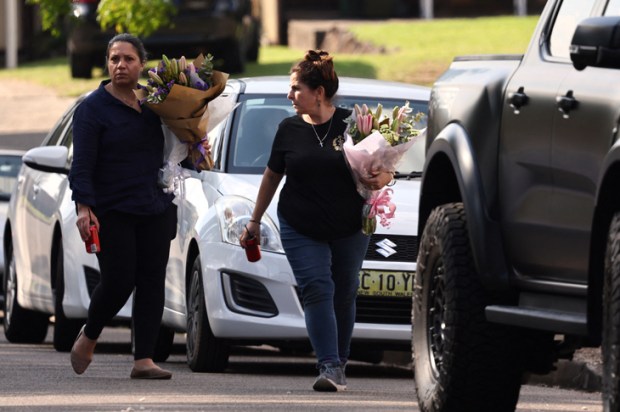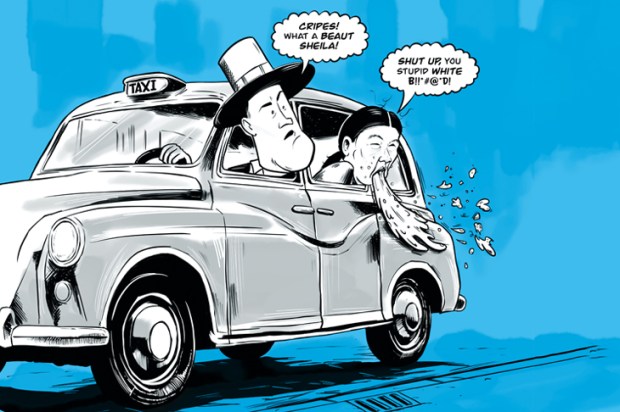Figures released last week show record coral cover on the Great Barrier Reef. It is hardly a surprise that its demise has been greatly exaggerated.
When Greens leader Adam Bandt recently declared that ‘the Great Barrier Reef will die,’ one could confidently predict that the opposite was true. When US president Barack Obama said in 2015 that ‘the incredible natural glory of the Great Barrier Reef is threatened,’ it was as likely to be correct as his modest prediction that his nomination as Democratic presidential candidate was, ‘the moment when the rise of the oceans began to slow, and our planet began to heal’. When Tim Flannery said, ‘we’re heading for a future where the Great Barrier Reef is a coral graveyard,’ who could forget his advice in 2007 that because Australia’s soil is warmer and its plants are under more stress, ‘even the rain that falls isn’t actually going to fill our dams and our river systems’. If only.
The only person to be vindicated by the news of the reef’s rude good health is Peter Ridd, who was head of James Cook University’s physics department and Marine Geophysical Laboratory but was pilloried by climate alarmists and hounded from his job for criticising his colleagues’ alarmism.
Now, the University of Delaware has reported that one of its star scientists is guilty of research misconduct and it has accepted an investigative panel’s conclusion that she committed ‘fabrication and falsification’ in work on fish behaviour and coral reefs. The university is seeking the retraction of three papers including a study about coral reef recovery. And where does the star scientist with the fishy behaviour hail from? That’s right, James Cook University. A group of whistle-blowers say its research culture deserves more scrutiny. The investigative panel found their accounts were convincing and singled out a young scholar out for praise, noting that it is very difficult to challenge an advisor on ethical grounds and took great bravery to come forward. Sadly, few academics had the courage to speak up to defend Ridd.
The reef’s coral rebound comes even though Adani has finally started its operations and Australia is shipping more coal and gas through the reef than ever. No doubt, the good news won’t persuade Environment Minister Tanya Plibersek to reverse her decision to put a stop to a central Queensland coal project, which she blocked because it was, ‘likely to have unacceptable impacts’ on the reef.
Unfortunately, there will be no showdown over the okay coral, as Simon Collins put it in his brilliant cartoon in these pages this week. Labor will simply expect the nation to forgo $8 billion in annual export revenue and up to 500 jobs. It demonstrates that Ridd is far from the only person who is losing out because of absurd climate catastrophism. The Reef is thriving. If only we could say the same for the economy, or for our universities and their commitment to academic freedom.
Fixing the constitution
The debate about the voice to parliament has turned ugly very quickly in depressingly predictable ways.
Brilliant indigenous leader and Senator Jacinta Price has been bullied by progressive men (no less) attacking her for supposedly giving a voice to racists because she is opposed to the creation of a voice to parliament and supports celebrating Australia Day on 26 January.
Perhaps progressives could take advice from Ramesh Thakur who writes this week how the preamble to the Indian constitution has given Indian Muslims, and women in particular, a way to embrace India’s national identity and wrap themselves in its flag.
And on matters constitutional, David Flint makes the excellent point that the real problem with our constitution is that it failed to protect us from the over-reach of our government during the pandemic. We should look at Japan’s post-war constitution as a post-pandemic model as it includes much stronger protections of individual freedom. Even under a state of emergency, the most the Japanese government can do is strongly request the cooperation of citizens. How much better Australians would have been if they had had similar constitutional protections.
Got something to add? Join the discussion and comment below.
Get 10 issues for just $10
Subscribe to The Spectator Australia today for the next 10 magazine issues, plus full online access, for just $10.
You might disagree with half of it, but you’ll enjoy reading all of it. Try your first month for free, then just $2 a week for the remainder of your first year.















Comments
Don't miss out
Join the conversation with other Spectator Australia readers. Subscribe to leave a comment.
SUBSCRIBEAlready a subscriber? Log in